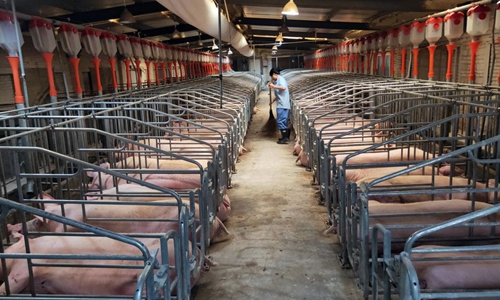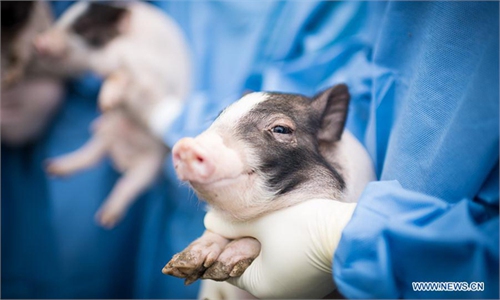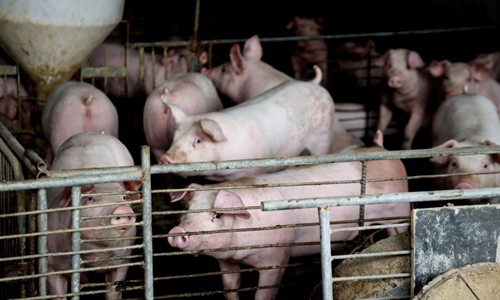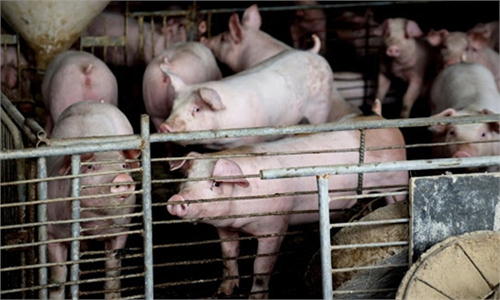
File photo. Photo: Xinhua
Central China's Hubei Province will be home to the country's first high-end boar selection and breeding demonstration base, where cloning technologies will be applied to protect endangered local boar species. This base is intended to break the foreign monopoly of some top breeds and make China's pork industry independent.On Monday, the Hubei Academy of Agricultural Sciences and Hubei Jinbao Boar Genetic Technology Corp announced that they will jointly build China's first high-end boar selection and breeding demonstration base in Jingmen.
Cloning technologies will be used to salvage and protect precious and endangered local boar species, while breeding research will be carried out to rapidly breed and expand new breeds of excellent pigs, the Hubei Daily reported on Tuesday.
Breeder boars are sometimes called "pig chips," and the selection and breeding of breeder boars is the core of the system. However, breeding local boars is expensive and time-consuming, so many companies prefer to directly introduce foreign breeder boars to make profits quickly. This new base will fill the gap.
The base aims to break the foreign monopoly in the top breeding market, and solve the longstanding lack of core technology that has been holding back China's pig industry.
Some 40 percent of imported boars are from Denmark while China also imports the animals from the US, the UK and Canada, according to media reports. The market volume was 10,000 in 2017 but increased sharply since the African swine fever broke out.
"Cloning technology can yield a large number of good breeding boars and accelerate the progress of the genetic improvement of pigs," Dr. Hua Zaidong, vice director of the Hubei Academy of Agricultural Sciences, explained.
China is the world's biggest pork producer and consumer, with the biggest pork market worldwide. However, in the breeding segment, no domestic boar with strong competitiveness has been bred so far. After swine fever broke in Africa in 2018, pig transfers and boar exchanges were restricted, which affected China's pork supply chain. Independent selection and breeding of high-quality breeding boars is a challenge that China's pork industry faces, to eliminate dependence on imports.
"The ideal boar species should have a high feed conversion rate, quality meat, high meat yield, short production cycle, high fertility and disease resistance," Hua told the Global Times. "The team will use cloning technology combined with mature breeding biotechnology to replicate and expand boars with these qualities according to market demand."



